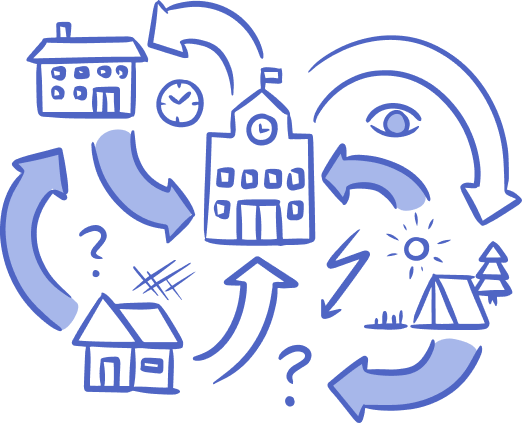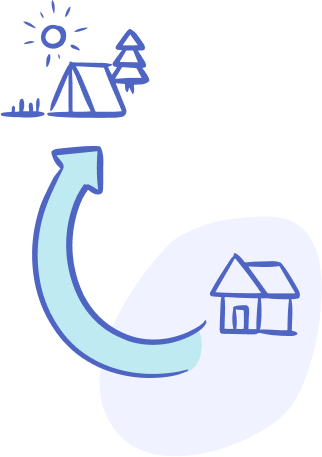Transitions and Aftercare
As you go through this process with your child, you will inevitably manage many transitions — from program to program, from program to home, or even back to a program.


Transitioning to a
Wilderness Program
If you are putting your child into a wilderness program for the first time, most programs will advise you not to tell your child ahead of time for fear that they will run away or do something destructive or dangerous. If you think your child may be willing to go to a wilderness program, involving them in the process — perhaps with other family and professionals — may reduce this stressful transition substantially and lead to a gentler path to a wilderness program.
Transitioning from Wilderness to
Residential Treatment or Therapeutic Boarding
In addition, because wilderness programs only offer essential amenities, transitioning to residential treatment or therapeutic boarding school may often feel more comfortable. It is important to keep in mind that your child will be learning to navigate a new environment – from meeting new friends, to learning new rules, and to meeting new staff and therapists.
Visiting your child
in a program
Be prepared — your child may be angry. These visits are hard and emotional. You may find that you really connect and get insight into your child and the dynamics that brought them to this point. But you may also feel very disconnected and frustrated. Sometimes, an “off campus” visit will provide an opportunity for a child to relapse into whatever behavior got them into the program in the first place. That can be tremendously frustrating.
Just remember — this is a journey. There will be steps forward and a few steps back along the way.
Transitions from a program
to home and back
Visits are often for a holiday, an event, a family wedding, or other occasion. The staff will work with your child and family to come up with a plan for the visit and ground rules designed to give the visit the highest chance of success.
You may feel very excited for your child to come home. You may likely also have some trepidation. If addiction is the issue, how do you keep them away from enabling friends? If anxiety and depression are the primary issues, how do you avoid the triggers that exacerbate the problem?
How do you prepare the rest of the family? What happens if there is a relapse or incident of some kind? How should you treat your child differently? How long should the visit be and what kinds of activities should you plan?
The program will help you through all of these questions before any home visit. But it may still be a difficult transition for everyone.
Transitioning to a
Young Adult Program
Transitioning home or to a
more traditional learning environment
If your teen has spent time in one or more programs, they likely worked through the issues that got them there, or least learned coping skills that help them control their impulses and/or have found healthier outlets for their stress.
Some children may repeat a year of academics at their school at home to make up for lost time.


